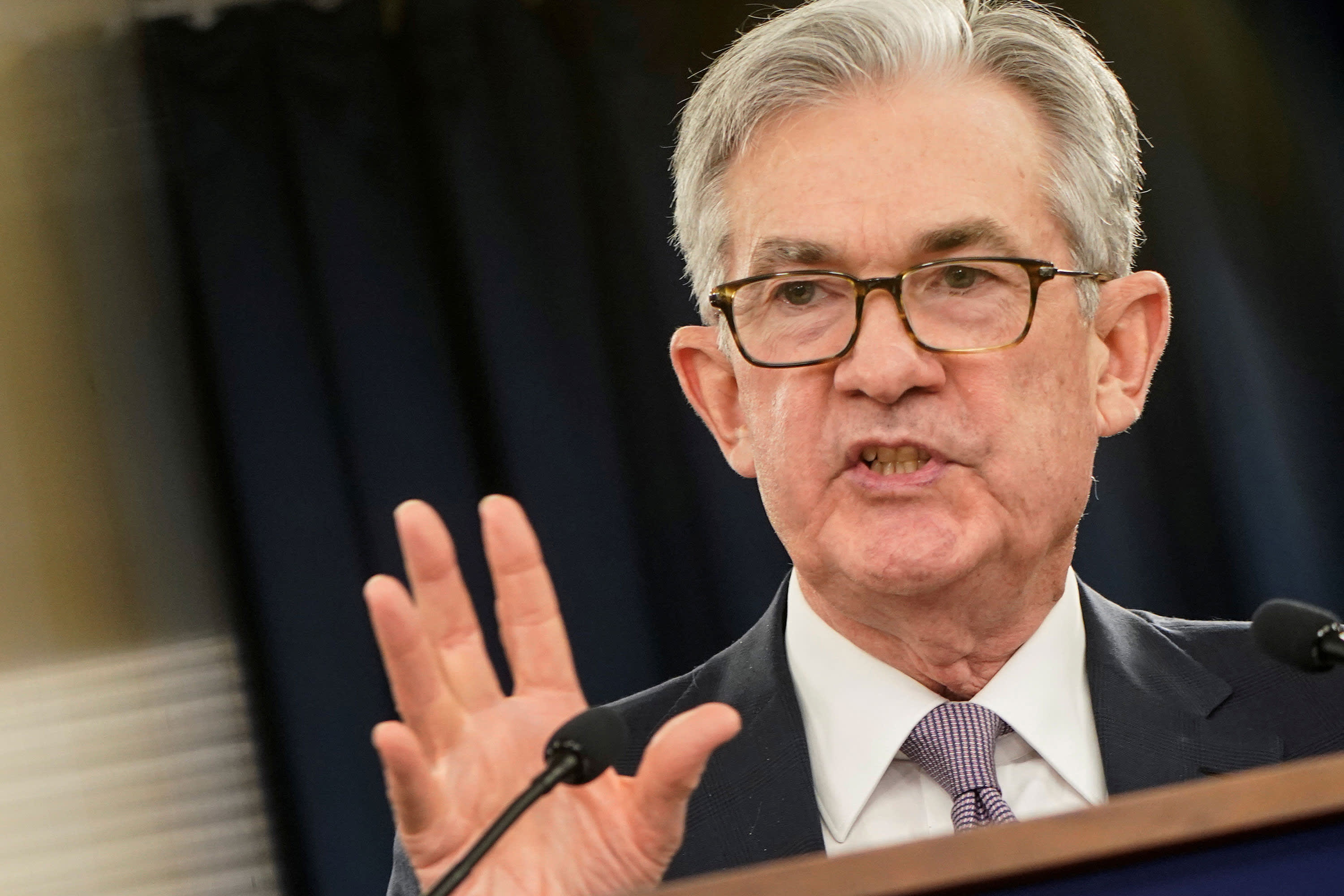Federal Reserve Chair Jerome Powell holds a news conference following the Federal Open Market Committee meeting in Washington, December 11, 2019.
Joshua Roberts | Reuters
The Mortgage Bankers Association in a dire letter to regulators Sunday warned that the U.S. housing market is “in danger of large-scale disruption,” due to efforts by the Federal Reserve that were intended to help rescue the mortgage market.
At issue are the Fed’s unprecedented $183 billion of purchases last week of mortgage-backed securities. The purchases were meant to drive down rates, and they did.
But they also effectively blew up a widespread hedge that mortgage bankers use to protect themselves against rate increases after they lock a customer’s mortgage. The hedge pays them if the prevailing rate in the market is higher than the rate they locked with the customer.
The huge spike in the price of mortgage bonds created massive margin calls from the broker-dealers who wrote the hedges to their mortgage banking customers. Some mortgage bankers are facing margin calls of tens of millions of dollars that could drive them out of business.
Hardest hit are independent mortgage bankers who wrote about 55% of the $2.1 trillion mortgages created last year.
In its letter to regulators, the MBA said, “…The dramatic price volatility in the market for agency mortgage-backed securities [MBS] over the past week is leading to broker-dealer margin calls on mortgage lenders’ hedge positions that are unsustainable for many such lenders.”
The letter went on to say, “Margin calls on mortgage lenders reached staggering and unprecedented levels by the end of the week. For a significant number of lenders, many of which are well-capitalized, these margin calls are eroding their working capital and threatening their ability to continue to operate.”
Some lenders, the letter said, may not be able to meet their margin calls in a day or two.
The Fed came into the mortgage market forcefully two weeks ago when rates began to rise because a large array of investors were selling MBS to raise cash, in part, to offset strong losses in the stock market. There was also fear that borrowers wouldn’t be able to pay.
In the week of March 16, the Fed bought $68 billion of mortgages. But the market still saw massive selling, prompting the Fed to come in with an additional $183 billion of purchases last week. The combined quarter-trillion-dollar in mortgage purchases by the Fed over two weeks was $84 billion more than the Fed had bought over any four-week period during the financial crisis in 2009.
Ironically, the MBA had urged the Fed to come in strongly to help the mortgage market. “We understand that when the Fed came into the market, they couldn’t come in surgically. They didn’t have a scalpel. They only have a sledgehammer,” MBA chief economist Micheal Frantanoni told CNBC.
The New York Fed is expected to purchase another $40 billion of mortgages Monday, the same amount it purchased on Friday, suggesting the Fed is either unaware of the problem or declining to respond. The New York could not be reached for comment Sunday evening. Frantantoni said, “We are expecting the Fed to modulate their purchases.”
But Barry Habib, founder of MBS Highway, a leading industry advisor who was among the first to publicly sound the alarm bell last week, said the Fed needs to go further than just modulate.
“This is a collapse of the system,” Habib said. “It’s as simple as the Fed stops buying for a period of time.”
While CNBC has learned that the MBA has made its concerns known to the Fed and other regulators, the specific request in the MBA letter went to the Financial Industry Regulatory Authority and the Securities and Exchange Commission. The MBA asked for regulatory relief for the broker-dealers who provide the hedges. Regulators have recommended a best practices guideline to collect margin on any variation above $250,000.
The MBA asked FINRA and the SEC to issue guidance urging lenders not to escalate the margin calls to “destabilizing levels.”
